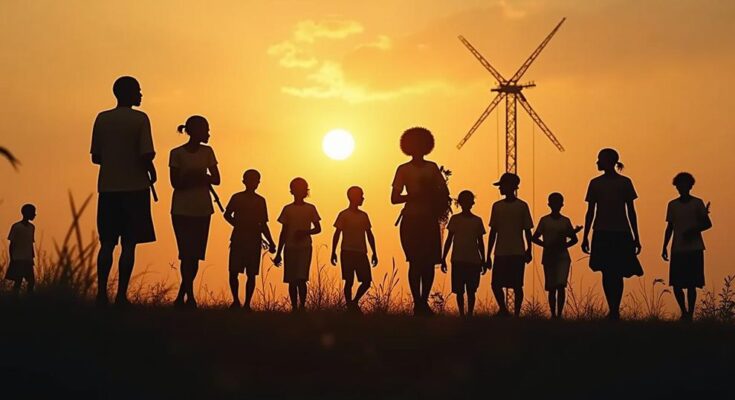In 2024, nearly one million people have been displaced in the Democratic Republic of Congo, raising concerns about escalating violence, human rights abuses, and food insecurity, according to UN human rights chief Volker Turk. The report indicates that over 6.4 million are internally displaced, with 23.4 million facing food insecurity as armed groups perpetrate a significant number of violations, particularly against women and girls. The lifting of the moratorium on the death penalty further complicates the human rights situation in the country.
In 2024, an alarming trend has emerged in the Democratic Republic of Congo (DRC) as nearly one million individuals have been displaced due to ongoing conflict, according to the United Nations human rights chief, Volker Turk. Speaking to the UN Human Rights Council, Turk highlighted the deteriorating conditions within the region, emphasizing the intersection of rising violence, external interests, detrimental corporate practices, and a weak legal framework. Turk noted that of the reported human rights violations, a staggering 85 percent occurred in the conflict-ridden eastern provinces of the DRC over the past year. Armed groups were responsible for approximately 61 percent of these abuses. Sadly, 700 new cases of sexual violence were documented within the same timeframe. “Armed groups abduct, hold captive and subject women and girls to sexual slavery. Many have been killed after being raped. All cases are certainly not being reported. This is atrocious,” Turk asserted. The humanitarian toll continues to rise with 940,000 additional internally displaced persons (IDPs) recorded this year, bringing the cumulative total to over 6.4 million. The crisis has exacerbated food insecurity, with an estimated 23.4 million individuals lacking access to sufficient, safe, and nutritious food. Turk also expressed grave concern regarding the resumption of death penalties following the lifting of a moratorium in force since 2003, describing this as a “major step backward”. He reported that since the law’s reinstatement, military courts have sentenced 128 men to death, urging authorities to refrain from carrying out these sentences. Furthermore, Turk remarked on the paradox of the DRC’s natural wealth alongside rampant exploitation and illegal trading of its resources. This exploitation is fueled by complicity from outside corporations and contributes significantly to the ongoing violence, thereby perpetuating widespread poverty in a nation deemed one of the poorest globally. “This situation is unacceptable,” he stated, linking the global supply chain, such as mobile phones, to the DRC’s mineral wealth feeding exploitation. Turk’s speech came as the DRC contends for a seat on the UN Human Rights Council, signaling an essential juncture for improving the nation’s human rights landscape amidst these ongoing challenges.
The Democratic Republic of Congo has been mired in conflict for decades, resulting in one of the largest displacement crises in the world. International bodies, including the UN, have been vocal about the worsening human rights situation in the country, particularly in the eastern regions where armed groups exercise significant control. The DRC is rich in natural resources, but corruption, illegal mining, and exploitation by both domestic and foreign entities compound the violence and poverty experienced by many citizens. The resumption of the death penalty has raised human rights concerns among international observers, as the country grapples with governance and legal challenges.
To summarize, the situation in the Democratic Republic of Congo remains dire with nearly a million more individuals displaced this year alone. Widespread human rights abuses, including escalating violence and systemic exploitation of natural resources, continue to erode the rule of law and contribute to overwhelming poverty. The global community must respond to these challenges with urgency and commitment to protecting human rights and fostering stability within the DRC.
Original Source: www.jamaicaobserver.com




